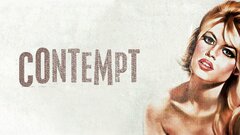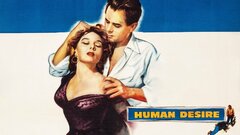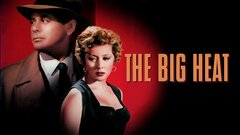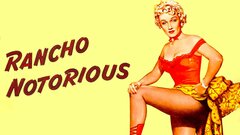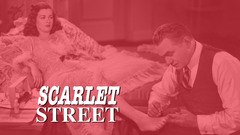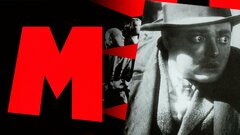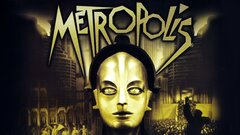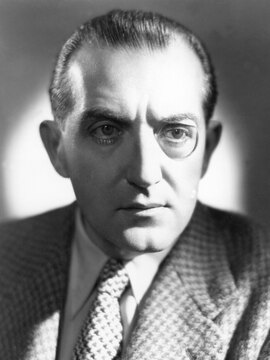A dark visionary whose meditations on human loneliness were punctuated by a stark visual style and an obsessive work ethic, Austrian director Fritz Lang made a number of acclaimed silent and talkie films in Germany before fleeing the Nazis to become a noted practitioner of film noir in Hollywood. Lang's often fatalistic worldview was on full display early in his career with the silent epic "Metropolis" (1927), a stunning cinematic achievement that influenced countless science fiction films throughout the decades. With "M" (1931), his first movie with sound, he crafted a dark and disturbing tale that introduced the wider world to actor Peter Lorre. After fleeing the Nazis following "The Testament of Dr. Mabuse" (1933), Lang found his way to Hollywood, where he began a long tenure directing a variety of genres, though ultimately specializing in film noir like "Fury" (1936). He tried his hand at the Western with "The Return of Frank James" (1940) and "Western Union" (1941), both of which proved exceedingly popular with audiences, before returning his focus almost exclusively on noirs like "The Woman in the Window" (1944) and "Scarlet Street" (1945). Following another popular Western, "Rancho Notorious" (1952), starring Marlene Dietrich, Lang directed "The Big Heat" (1953), a classic film noir long considered on of the best ever made in the genre. He made only a few more films for Hollywood before returning to Germany, where he ended his career on a soft note with "The 1000 Eyes of Dr. Mabuse" (1960). Despite living out the remainder of his life in relative quiet, Lang was later championed by a wide swath of filmmakers like Jean-Luc Goddard, Woody Allen and Martin Scorsese for his pioneering vision and profound impact on the art of filmmaking.
Born on Dec. 5, 1890 in Vienna, Austria, Lang was raised by his father, Anton, an architect, and his Jewish mother, Paula, who later converted to Catholicism and raised her son in that particular faith. After finishing his primary education, he followed in his father's footsteps and briefly studied architecture at Technische Hochshule, only to make the switch to art at the School of Arts and Crafts in Munich and later the Academie Julien in Paris. Once World War I broke out across Europe, Lang returned to Vienna and volunteered to join the Austrian army. Wounded three times - he lost vision in his right eye - while fighting in Russia and Romania, he was eventually discharged from his service with the rank of lieutenant and not long after, began acting in the Viennese theatre. Lang also ventured into screenwriting, penning "The Wedding in the Eccentric Club" (1917) and "Hilde Warren and Death" (1917), and was soon hired by producer Erich Pommer to write for the German-based production company, Decla.
Lang was soon motivated to become a director, a career that began with The Half-Caste" (1919), a tale of revenge lost to the sands of time. He later directed the first film of a two-part international thriller called "The Spiders "(1920). Part one, subtitled "The Golden Lake," proved so popular that his producers insisted Lang immediately make part two, "The Diamond Ship." Following "The Wandering Image" (1920), Lang's career rose to spectacular heights of fame. With each film, he became more assured, garnering critical acclaim as well as a popular following. Lang directed the mammoth four-hour "Dr. Mabuse the Gambler" (1922), a two-part film that marked the first of three movies he helmed featuring the titular character, a mast criminal who uses disguise and hypnosis to con unwitting victims out of their money. He next directed another two-part film, "Die Nibelungen" (1924), an epic fantasy based on a 13th century poem that feature stark and stunning imagery, including a weeping willow tree that transforms into a skull. But all was a precursor to the science fiction epic, "Metropolis" (1927), a groundbreaking film that influenced all other sci-fi films in the decades that followed, including "2001: A Space Odyssey" (1968), "Star Wars" (1977) and "The Matrix" (1999), as well as even music videos, such as the David-Fincher-directed "Express Yourself" video by Madonna. Set in a futuristic dystopian world where mankind has been divided over industrialization and runaway technology into thinkers and workers. Undoubtedly prescient about the future, "Metropolis" was a landmark film in cinema history, not only for its sheer breadth and special effects wizardry, but also for the amount of money spent on production - made all the more surprising since it was a product of the Weimar Republic, not Hollywood.
Lang made his last two silent films, "Spies" (1928) and "Woman in the Moon" (1929), before making the remarkable transition to sound with "M" (1931), a powerful study of a child serial killer (Peter Lorre) pursued by both police and the criminal underworld. Another cinematic classic, "M" stood the test of time as being one of Lang's finest works - and his own personal favorite - while introducing the world to Lorre, who was unfortunately typecast as a criminal for a great portion of his career thanks to this role. Meanwhile, Lang ran afoul of Nazi authorities with "The Testament of Dr. Mabuse" (1933), when the Third Reich accused him of anti-Nazi sentiments because the villains in the movie mouthed their propaganda. Though the film was banned, Lang was allegedly asked by the Nazi's Minister of Propaganda, Joseph Goebbels, to make films for the Third Reich. Lang declined and fled Germany for Paris, leaving behind most of his personal possessions, as well as his wife, screenwriter Thea von Harboum, with whom he already had a falling out with over her joining the Nazi party. While in Paris, he directed "Liliom" (1934), a fantasy about a carnival barker (Charles Boyer) who commits suicide to avoid prosecution for a robbery gone bad, only to find himself trapped in purgatory until he returns to Earth and does one good deed."
Liliom" was ill-received in France despite its merits, which prompted Lang to make a move to Hollywood, where he spent the next 20 years working in a variety of genres, though he ultimately became associated for his excellent work in film noir. His first movie for Hollywood, "Fury" (1936), was one of his best, a thriller about an innocent man (Spencer Tracy) who escapes a lynching and seeks revenge against the small town mob that prosecuted him. He followed up with the Depression-era drama, "You Only Live Once" (1937), starring Henry Fonda and Sylvia Sidney, before venturing into the world of Technicolor for two popular Westerns, "The Return of Frank James" (1940) and "Western Union" (1941). But his journey into the Wild West was brief, as Lang returned to the film noir on "Man Hunt" (1941), "Hangmen Also Die!" (1943) and "The Woman in the Window" (1944), the last being a tale of blackmail and murder starring Edward G. Robinson that proved to be one of his finer efforts in the genre. Lang reunited with his main cast from "The Woman in the Window" for "Scarlet Street" (1945), a bleak psychological noir about an ordinary man (Robinson) who falls prey to vice and murder, thanks to his involvement with a woman (Joan Bennett) who believes him to be a famous painter.
Lang went through a period in his career where he directed effective, but rather underwhelming crime films like "Cloak and Dagger" (1946), "Secret Beyond the Door" (1948) and "The House by the River" (1950). He returned to the Technicolor Westerns with "Rancho Notorious" (1952), which starred Marlene Dietrich as the matron of a criminal hideout and Arthur Kennedy who poses as a prisoner to gain entry in order to exact revenge on the killers of his fiancée. Lang followed up with "The Big Heat" (1953), an all-time classic film noir about a hardboiled cop (Glenn Ford) navigating the criminal underworld while investigating a string of murders. Taut, tense and unyieldingly violent - at least for its time - the film featured Lee Marvin in one of his most notorious roles, playing an out-of-control thug whose unleashes his fury in a famous scene by disfiguring Gloria Grahame's face with scolding hot coffee. Lang directed yet another film noir, "Human Desire" (1954), which focused on a railroad worker (Ford) compelled to murder in order to protect a sexy young woman (Grahame) from her drunk and abusive husband (Broderick Crawford).
After helming two more installments into the film noir canon - "While the City Sleeps" (1956) and "Beyond a Reasonable Doubt" (1956) - Lang tired of Hollywood and returned to Germany. Back where his career had begun, he embarked on his last set of films, which included what became informally known as his Indian Epics, "The Tiger of Eschnapur" (1959) and "The Indian Tomb" (1959), both of which were rather mundane efforts despite lavish production design. Lang directed what ultimately became his last film, "The 1000 Eyes of Dr. Mabuse" (1960), a return to familiar ground that sparked renewed interest in the character and spawned a number of sequels, though the director had no involvement in any of the subsequent films. Meanwhile, Lang made a rare onscreen appearance as himself in Jean-Luc Godard's "Contempt" (1963), though the circumstances in the film were entirely fictional. That performance wound up being the last time Lang was involved in any film either in front of or behind the camera. He made his way back to Hollywood and lived out the remainder of his life in quiet fashion before passing away at age 85 in his Beverly Hills home on Aug. 2, 1976. As witnessed by the likes of Stanley Kubrick, William Friedkin, George Lucas and David Fincher among many others, Fritz Lang left behind a legacy as a pioneering director who influenced numerous generations of filmmakers.





